I had a call from a friend’s son recently asking if I’d be willing to give him some advice. He enjoys taking pictures and wanted to ask me about pursuing a career in photography. I’ve heard that question many, many times during my career. And over the years, my answer has changed, but not for the better.
When I got started in photography, in the early 70s, it was more a craft than a hobby, and took years to learn. There were no automatic features. You had to teach yourself to manually focus (imagine shooting sports or wildlife). Your only exposure mode was Manual, so without understanding ISO, shutter speed and aperture you were screwed. There were different film stocks to learn, and color filtration for lenses and lights. Flash was manual too, so you had to calculate distance and ASA and aperture and then hope you got it right. Oh yeah, there was no LCD, so the feedback came long after you took the photos, once the film was processed and printed. And if you were serious, you also had to learn how to mix chemicals and use a darkroom, to develop film and make prints. It took time and dedication to learn the technical side well enough to even begin to be good. Oh, and then there’s the creative side of understanding composition and all that. Photography “back then” was more like being a painter. Only a few people could do it well. Times have changed.
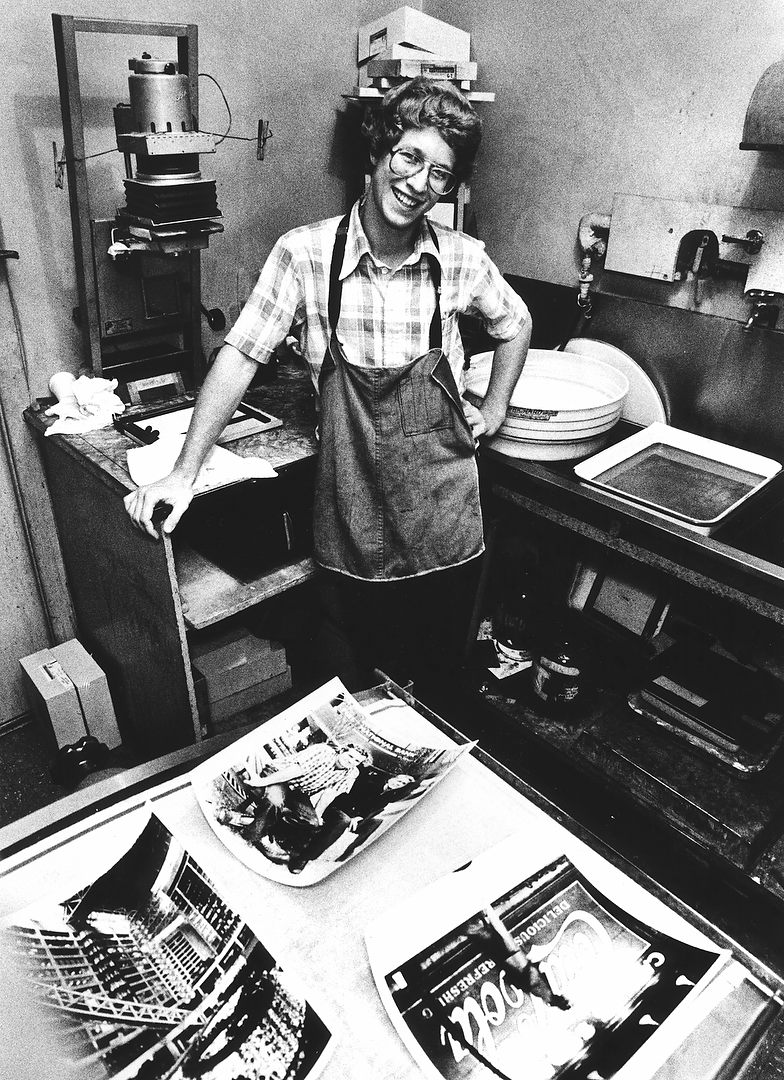
My darkroom at the Birmingham Post-Herald, back in 1979. Caustic chemicals and noxious fumes. Fun!
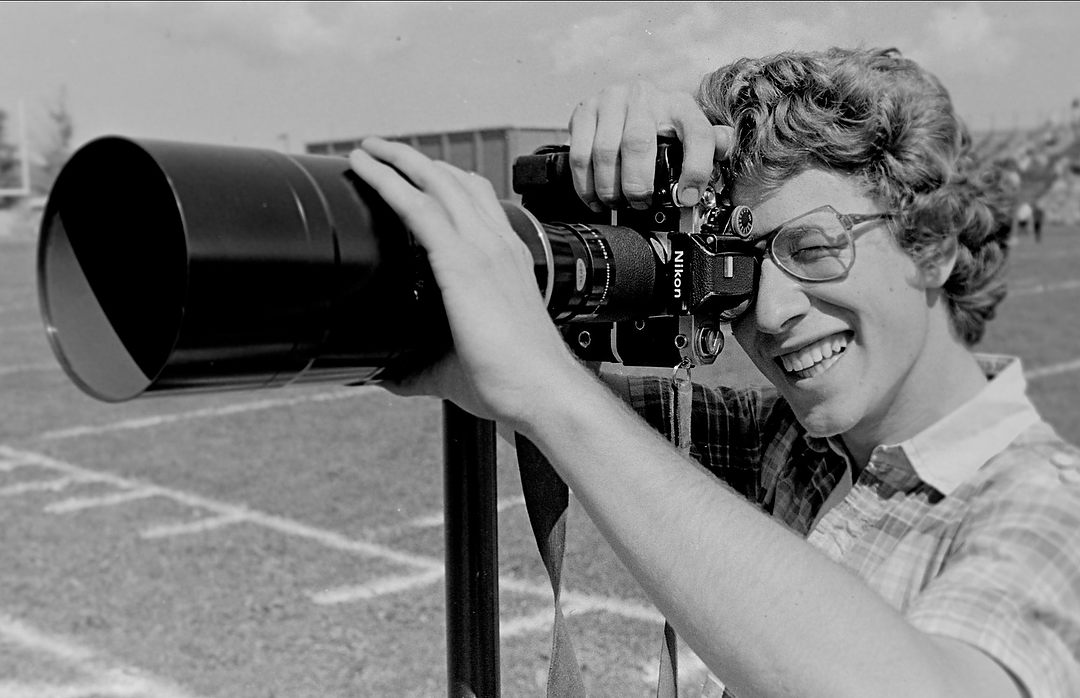
Yes, those were the days. Here I am in the early 80s using a manual focus Nikon 300mm f/2.8 (first one of its kind, preset aperture) and 2X teleconverter for high school soccer. It’s mounted on a Nikon F2 camera with MD-2 motor drive. With the drive, instead of manually advancing the film with the thumb lever after each shot, I could fire at a blazing fast four frame per second!
The advent of cameras with good autofocus and automatic exposure systems, followed quickly by digital cameras, meant the beginning of the end for many professional photographers. No longer did it takes years to learn to be a photographer. Someone with a creative eye could do a pretty good job the first day they picked up a camera. Uncle Sam and Aunt Betty were now considered good options for doing a portrait, senior shoot or even wedding. Would they do as good a job as a someone who’d spent years honing their craft? No. But here’s the other sad fact. Few people can tell the difference between a truly good photo and a mediocre one. For most folks, if a picture is in focus (or even close) and not too dark or light, they’re happy. Just look at Facebook and the comments posted about photos there. “Fantastic!” “Wonderful!” Gorgeous!” are regular comments on photos that, really, are not. In the past it didn’t matter if people knew a good picture from a bad one, they still needed to hire a photographer to get anything decent. No more.
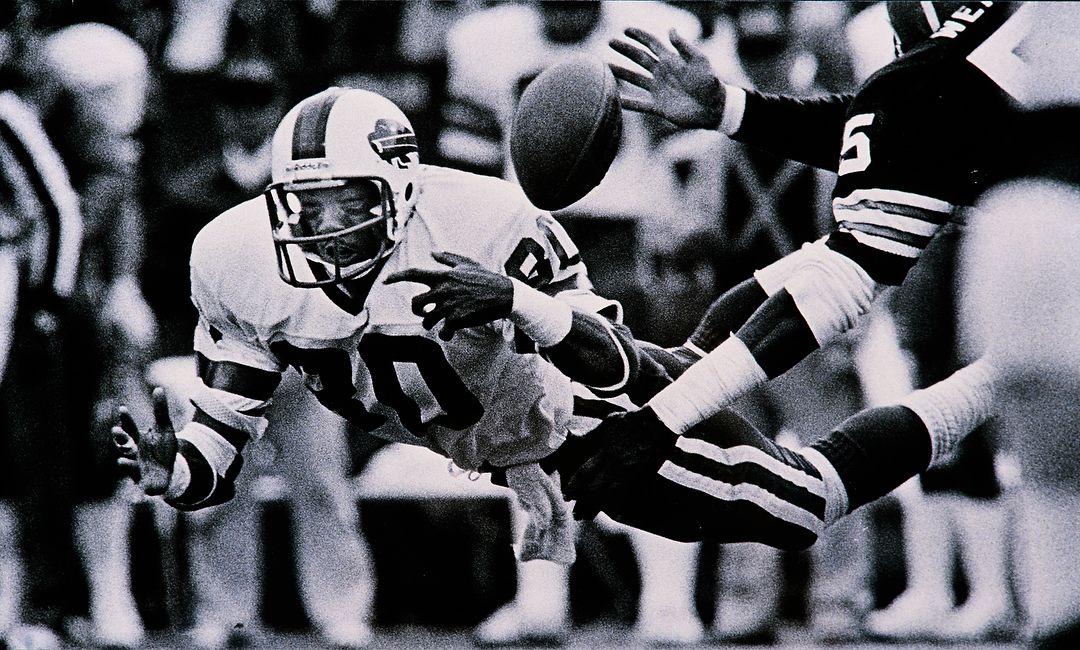
I covered the Buffalo Bills all through the 80s using manual focus lenses. That’s all there was at that time. This was shot with either Nikon’s 300mm f/2.8 or 400mm f/3.5, the two lenses we used during that period. It won an award in the Pro Football Hall of Fame contest that year.
When I started traveling the country teaching Nikon School back in 2002, the question I most feared was, “I really like photography and am thinking of quitting my job and making a career of it.” I wanted to shout, “No! Don’t do it!” Eventually, I came up with two different answers, which usually depended on the person’s age. If they were young, with few obligations, I’d tell them it was difficult, but if they were willing to approach it as a business and work hard for little to no money for a couple of years, they might be able to make it.
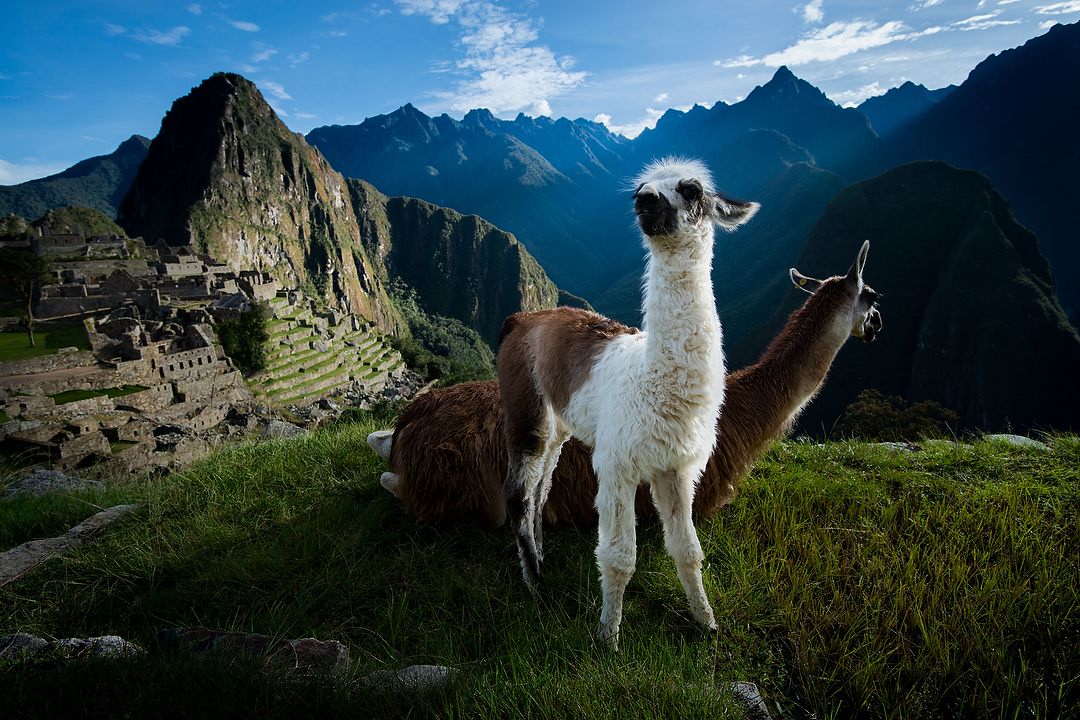
These are the kinds of photos we all want to shoot, but because everyone can now, there’s not much of a market to sell them. Nikon D800, Aperture Priority, Sunny white balance, ISO 100, 1/320 at f/7, EV -1.7, 16-35mm lens at 18mm.
If they were older, my answer changed. In that case, I’d ask what kind of photography they thought they could make a business of. Most would say, “Oh, travel, stock and landscape.” In other words, the fun stuff. Few people said “I love doing portraits, senior shoots and weddings.” So I pointed out that stock photography was essentially dead because too many people were happy to give their photos away. Same with travel and landscape. I reminded them that if they decided to do this, it would be a business, not a hobby they did for fun. I’d ask if they’d thought about a business plan. Figured out how much money they’d need each month to pay the mortgage/rent, car loan, auto insurance, health insurance, business insurance (liability, anyone?), replace gear (cameras, lenses, lights, etc.), repair gear, replace office equipment (computer, hard drives, monitors, etc.), maybe some food too? A vacation every few years might be nice. And they probably wouldn’t be doing the photography they loved. It would be a job. As a bit of panic crept into their eyes, I’d then ask if they currently had a decent job that provided decent benefits. If so, why not keep photography as a hobby, something they loved to do in their free time, a creative outlet that made them feel good?
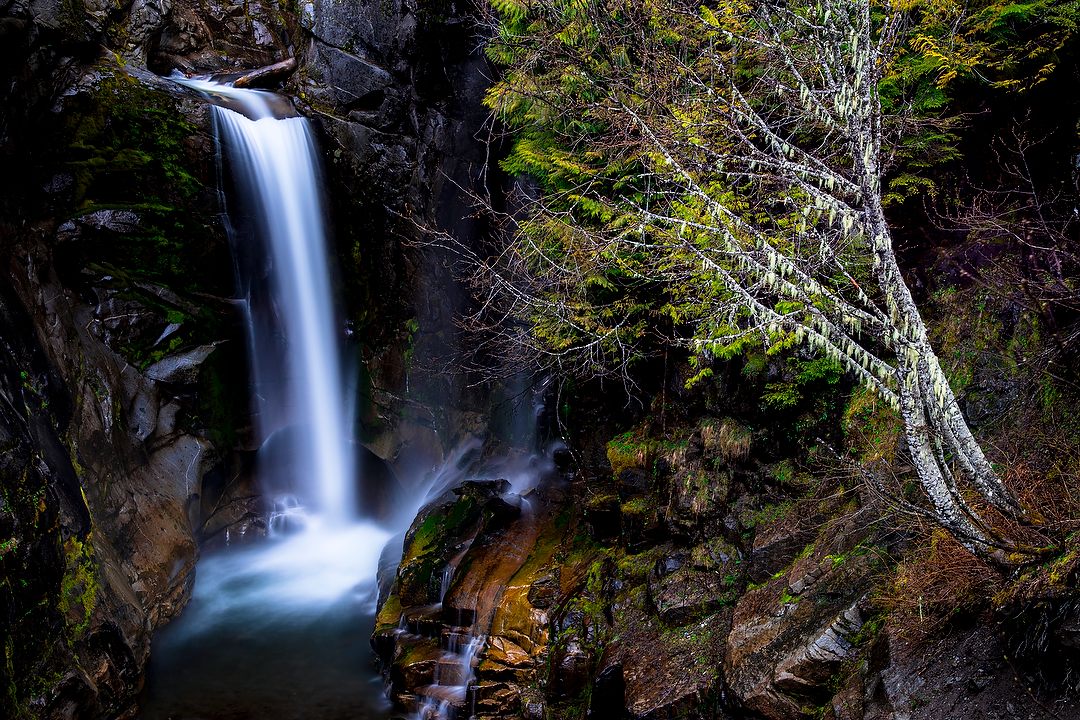
I love making photos like this (at Rainier National Park), but would rather keep it to myself and make a couple of print sales than give it to a stock agency for just a few bucks. Nikon D800, Aperture Priority, ISO 100, 15-seconds at f/10, EV -1.0, Nikkor 50mm f/1.8 lens.
Yes, it’s tough to make a good living as a professional photographer now. You’re competing with everyone out there who has a camera, and the many people running a side business, nights and weekends, charging ridiculously low fees.
And, of course, right now is an especially bad time to be a photographer. All my freelance friends are without income, and questioning not how long, but if, they can survive. A recent survey showed that 20% of professional photographers are seriously considering a career change. My business is mostly teaching and leading workshops, and everything I’ve had scheduled since the beginning of March through September has been cancelled or re-scheduled. I’m really, really hoping I can start leading workshops again this fall, but who knows? Fortunately, I’m old enough that I should be able to weather this.
Is it all doom and gloom? No. There will always be at least a few jobs for talented photographers. We live in a visual world, so becoming fluent in not just still photography, but video is essential.
And, of course, the flip side to this is that for everyone else, it’s never been easier to make good pictures. From smartphones to compacts to full-sized cameras, the quality they offer can be simply amazing. What I’ve enjoyed most about teaching and leading workshops is the joy and passion I see for photography among the folks who join me. Photography is perhaps the most accessible “art” form, because now anyone can do it. And as long as you’re not trying to make a living from it, it can be more than just a creative outlet. It can be something you continue to do, grow with and improve at, throughout the rest of your days. And that’s a pretty nice thing.
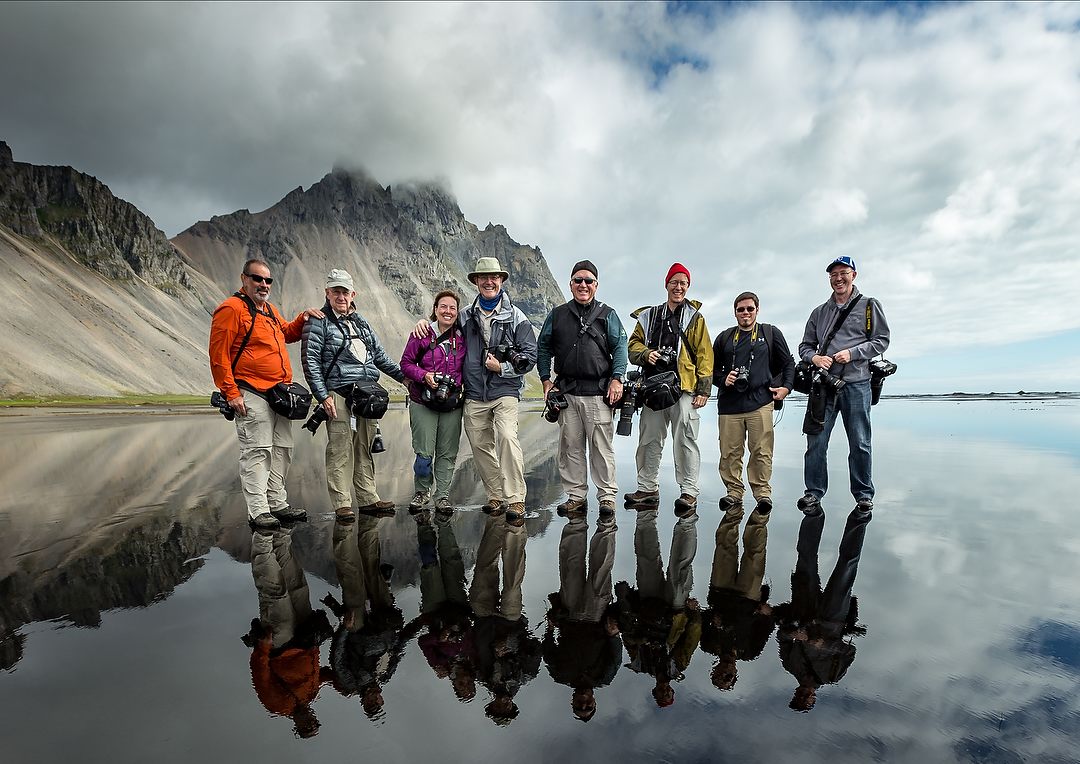
This is what I enjoy most now, taking people who are passionate about photography to special places and creating lifelong memories. This is in Iceland, with an amazing guide that I’ll use again for my trip in 2021. He’s actually a former photographer who found he could make a better living as a tour guide. Photo by Einar Olafur Matthiasson.
(If you like this story, please share it with your friends and let them know about the links on photography that I post on my business Facebook page. I’m also on Instagram and Twitter, @reedhoffmann. And if you’re curious about the workshops I teach, you can find them here.)

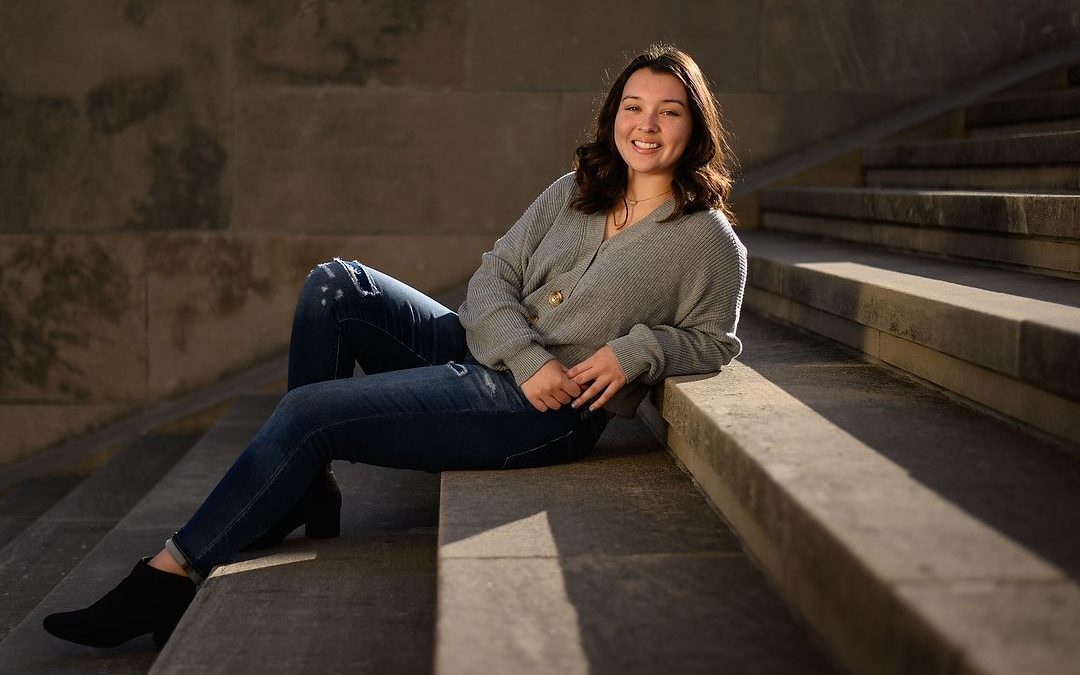
Words of wisdom from someone who’s been there, and done that! I’ve told countless others the same – if you can make a living doing ANYTHING else, DO IT. Continue to use photography as a creative (even therapeutic) outlet, something to be passionate about…
A very insightful blog!